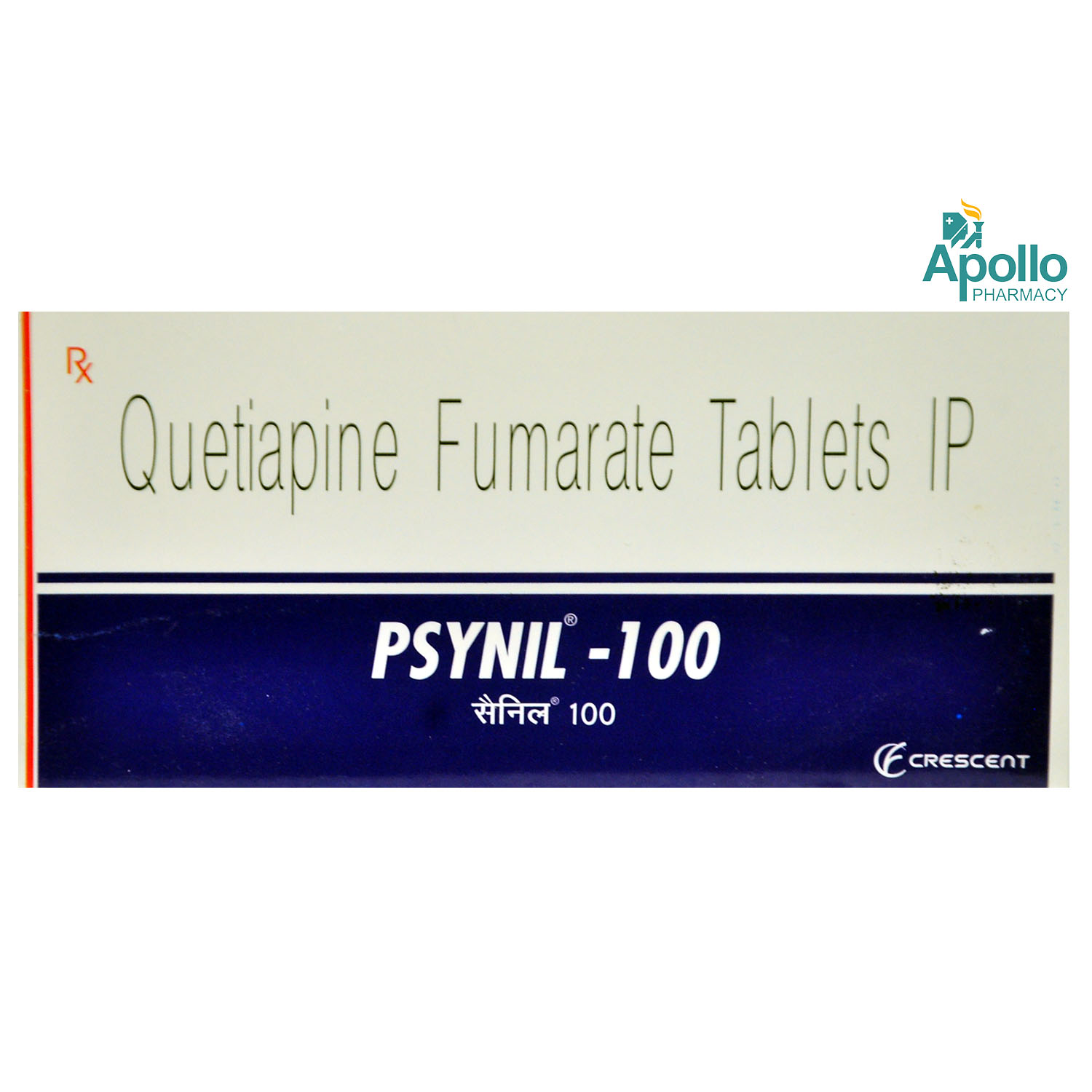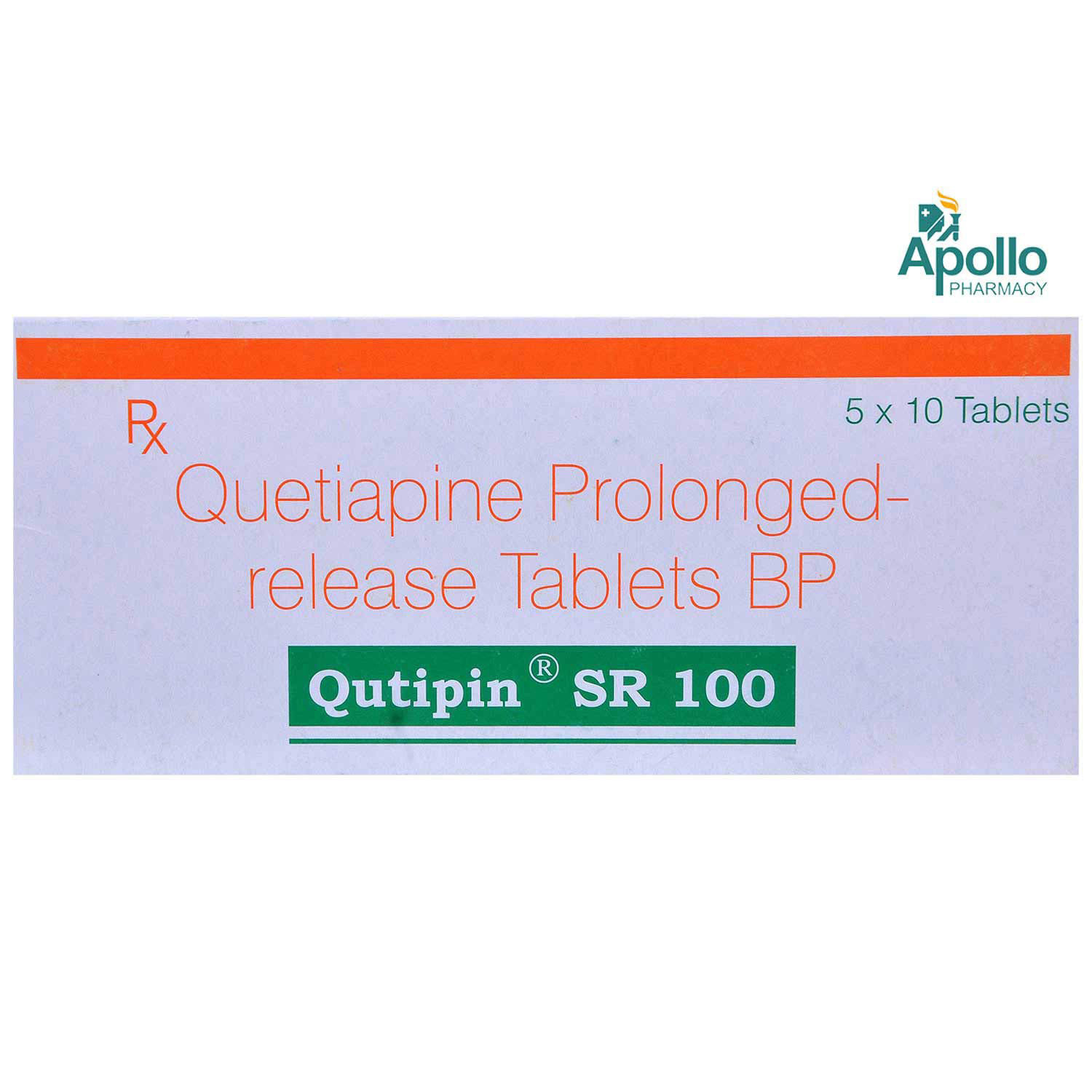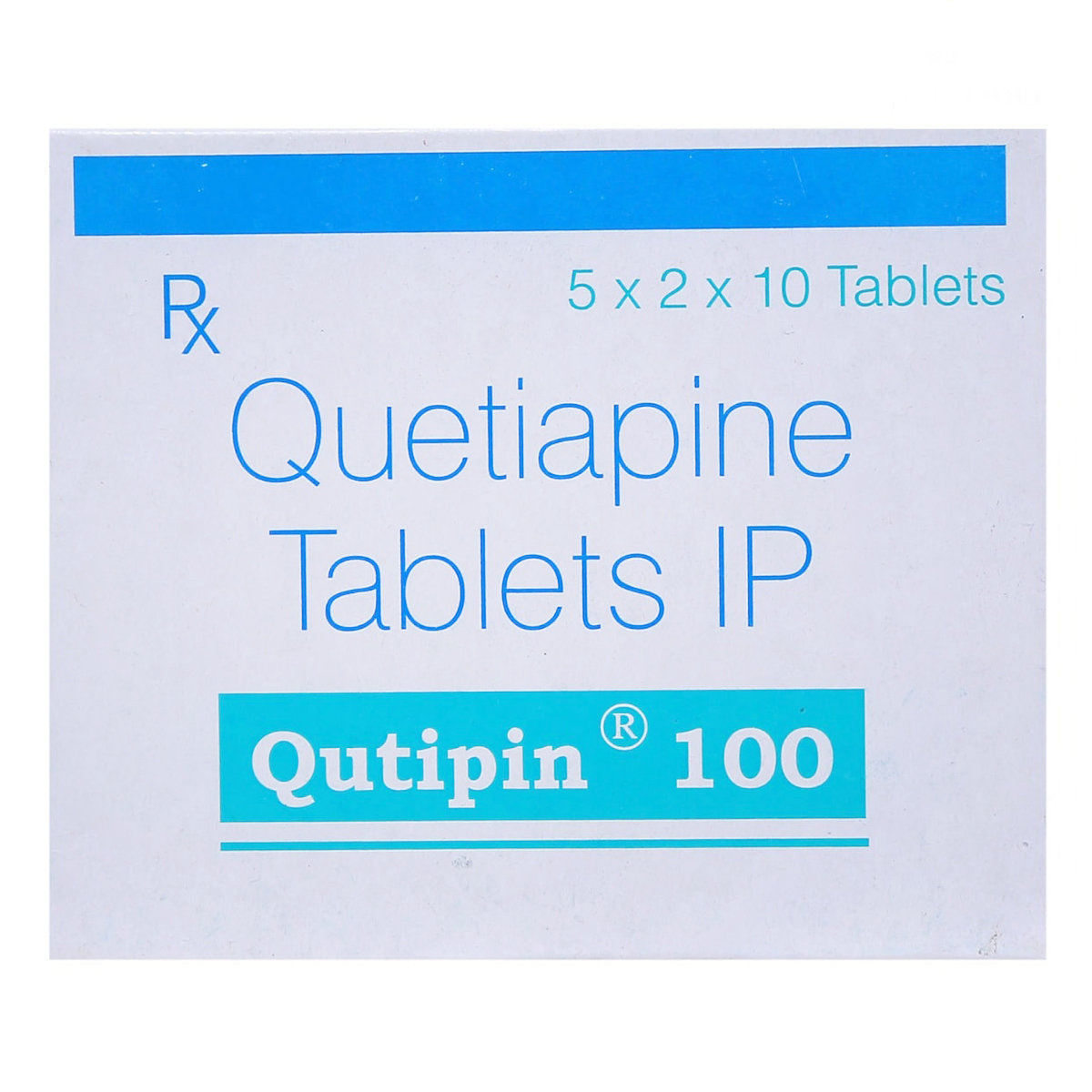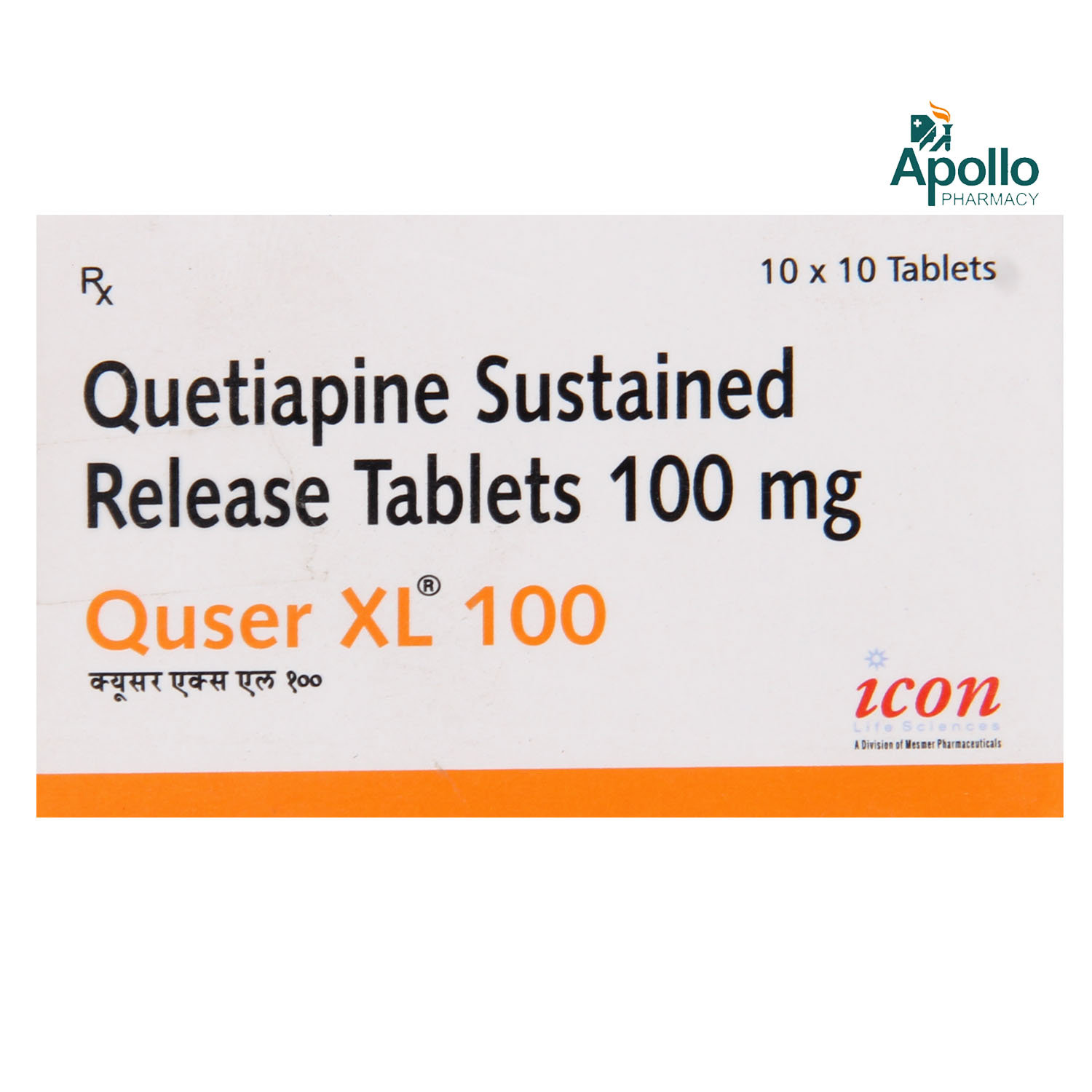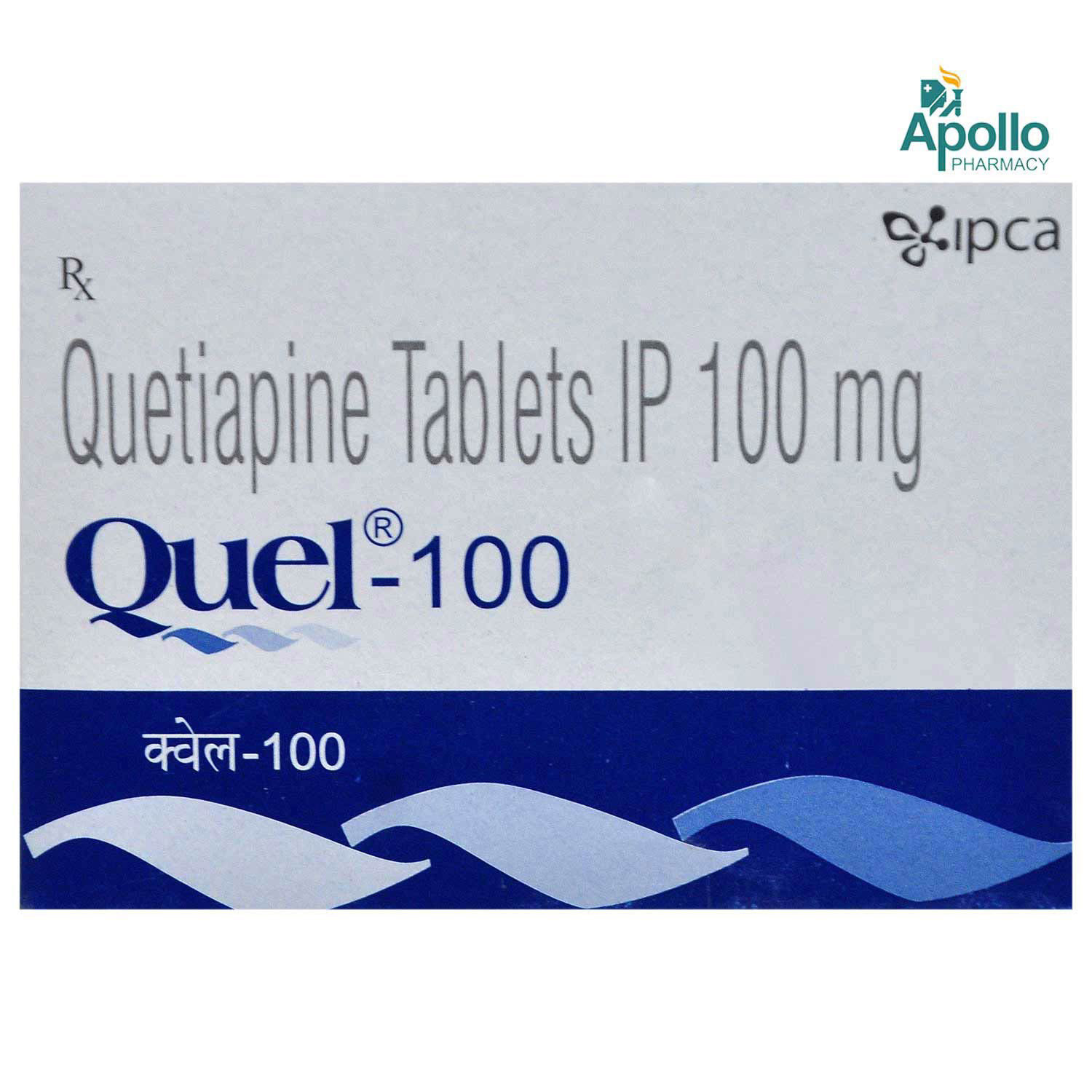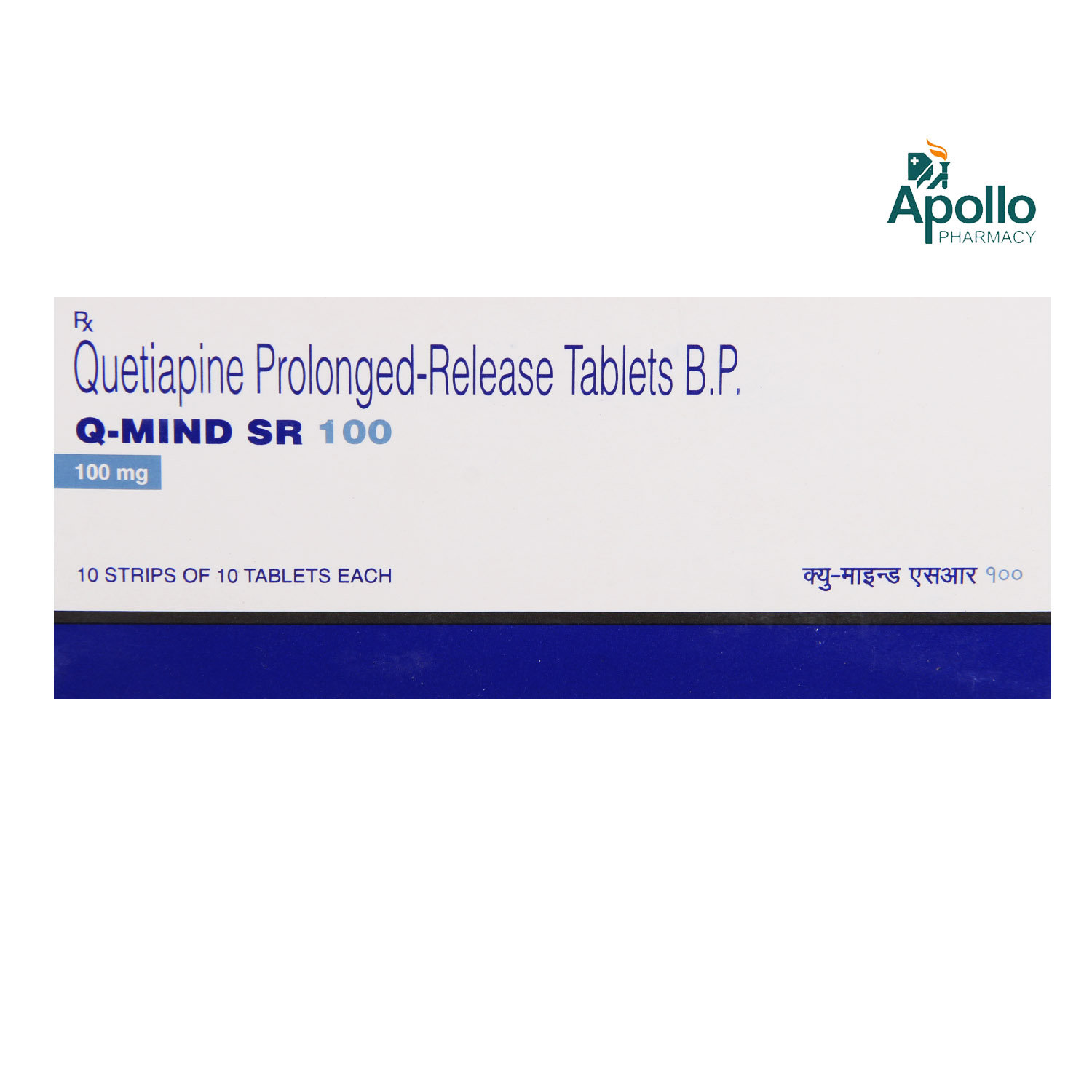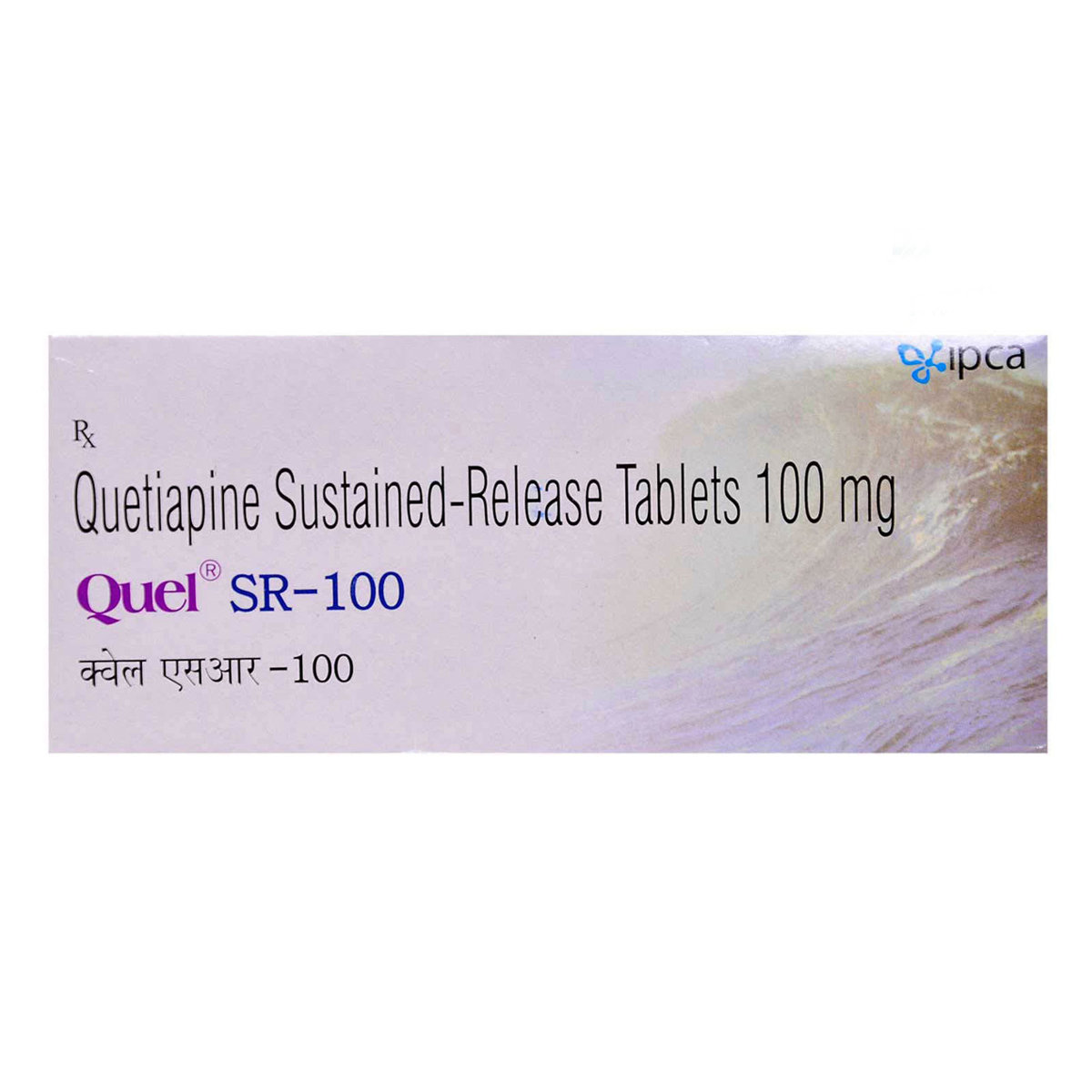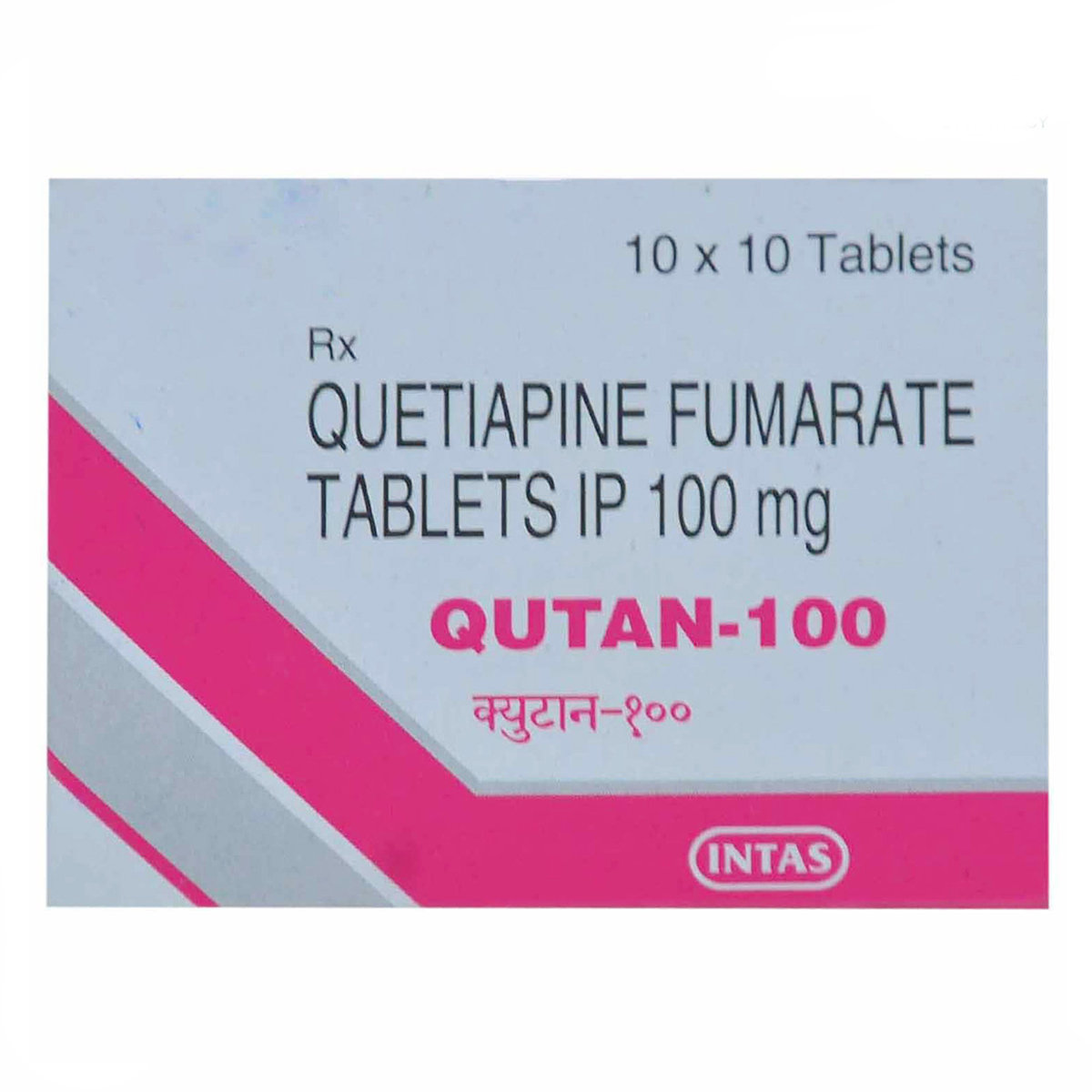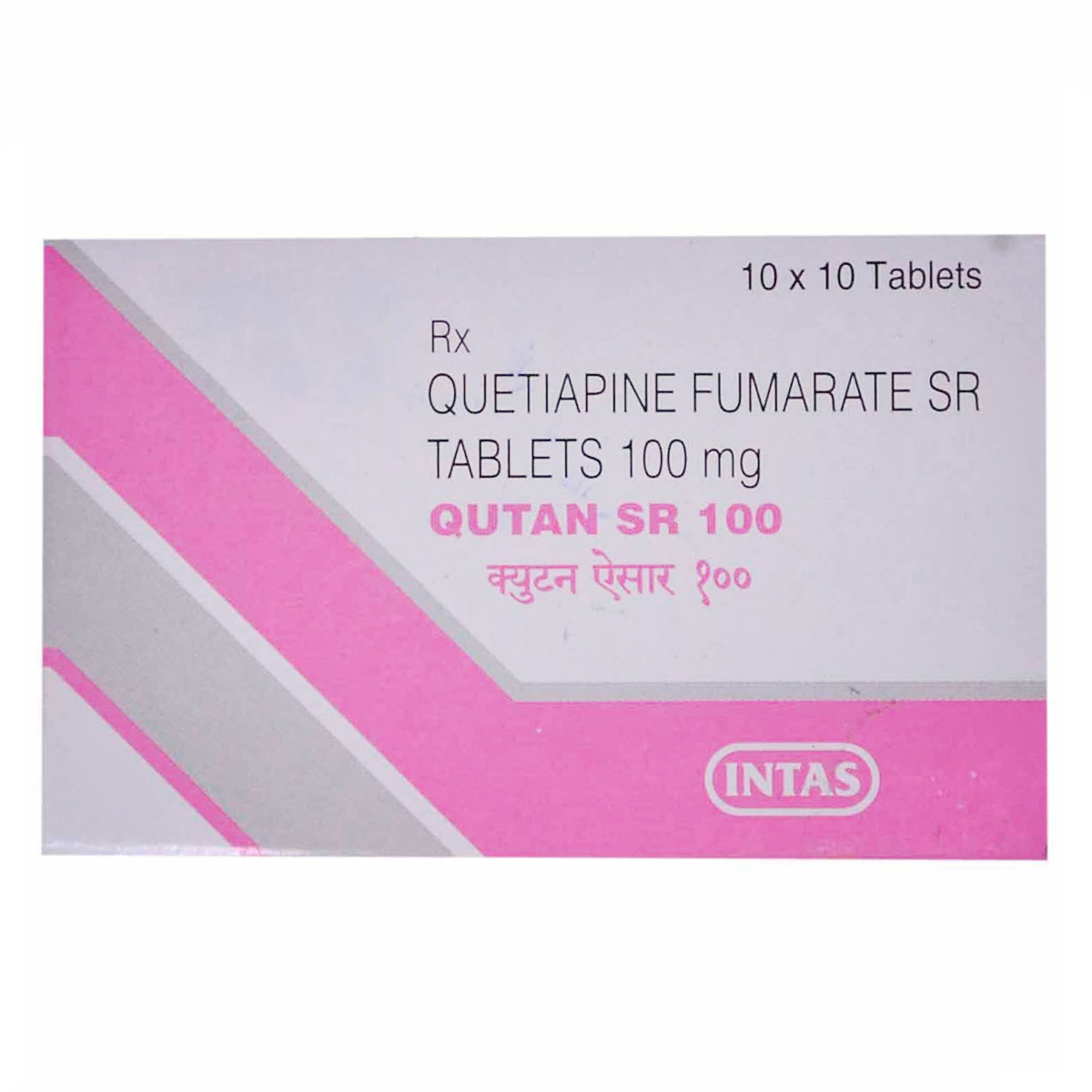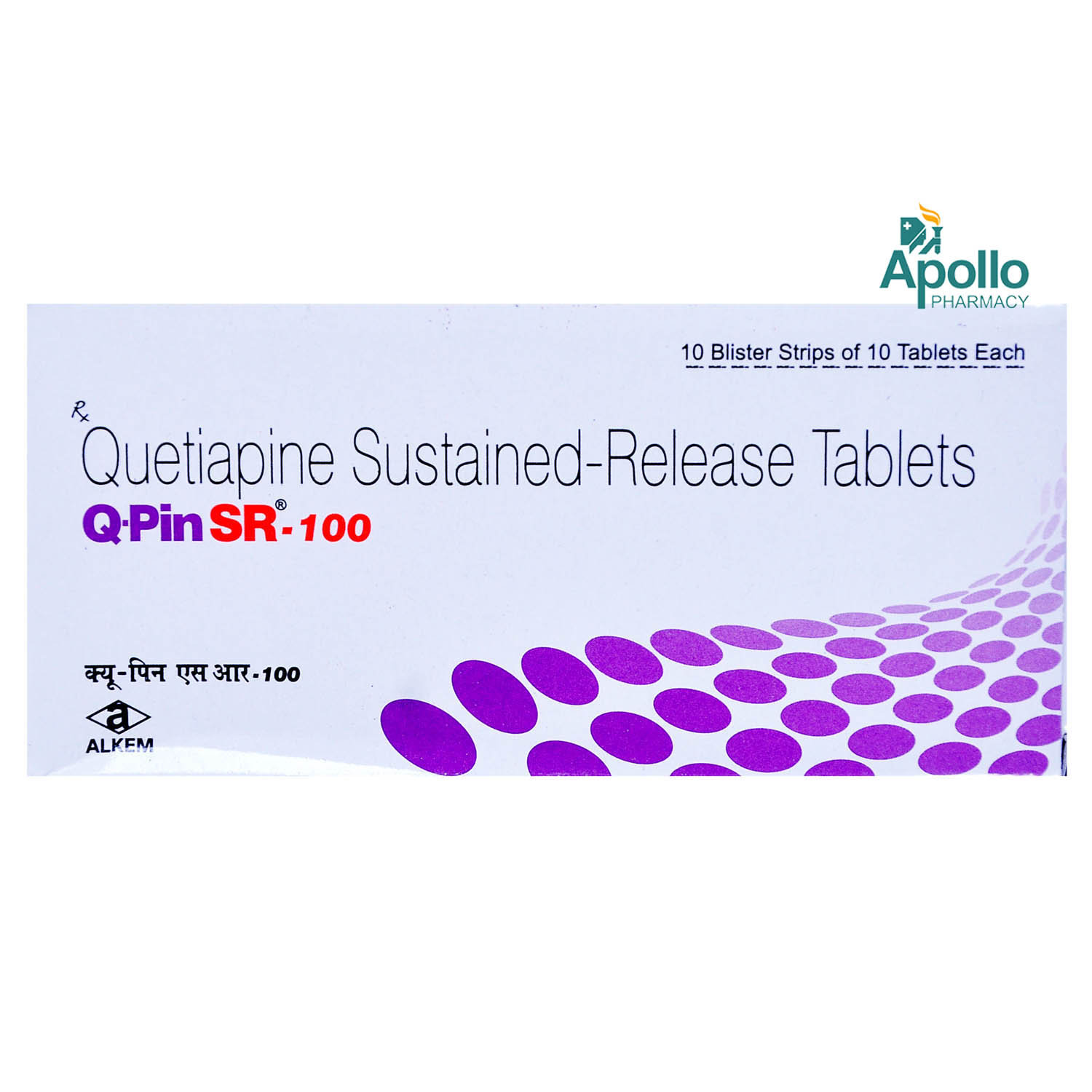Quticool 100mg Tablet 10's
MRP ₹79.5
(Inclusive of all Taxes)
₹11.9 Cashback (15%)
Provide Delivery Location
Online payment accepted
 Prescription drug
Prescription drugWhats That
Composition :
Manufacturer/Marketer :
Consume Type :
Expires on or after :
Return Policy :
About Quticool 100mg Tablet
Quticool 100mg Tablet belongs to a group of medications called ‘antipsychotics’. It is used in the treatment of bipolar depression, mania and schizophrenia. Bipolar disorder is characterized by manic episodes of excitement or euphoria and depression. Schizophrenia is characterized by symptoms of hallucinations (seeing or hearing things that are not real) and delusions (wrong beliefs).
Quticool 100mg Tablet contains ‘quetiapine’, which is an antipsychotic drug. It acts by blocking dopamine, a hormone in the brain responsible for developing symptoms of schizophrenia and bipolar disorder. Quticool 100mg Tablet also affects other neurotransmitters in the brain, such as serotonin, and its beneficial effects may also be related to this. Altogether Quticool 100mg Tablet rebalances dopamine and serotonin to improve thinking, mood and behaviour.
Quticool 100mg Tablet should be taken as prescribed by the doctor. Common side-effects of Quticool 100mg Tablet are dizziness, drowsiness, headache, dry mouth, abnormal muscle movements such as difficulty moving muscles, tremors and muscle stiffness, change in cholesterol levels, weight gain, and decrease in haemoglobin (protein in blood that carries oxygen) levels. Additionally, in children and adolescents, swelling of breasts in boys and girls and production of breast milk (due to an increase in prolactin hormone (helps in producing breast milk)) and irregular menstruation can be seen. Please do not stop taking Quticool 100mg Tablet without your doctor’s advice, as it may lead to withdrawal symptoms.
Do not take Quticool 100mg Tablet if you are allergic to quetiapine or any other ingredients present in it. Before taking Quticool 100mg Tablet , inform your doctor if you have problems associated with the liver, kidney or heart. Also, inform your doctor if you have any sleeping difficulties. It is not recommended for use in children under 18 years of age. Tell your doctor immediately if you develop suicidal thoughts, or your depression worsens after taking Quticool 100mg Tablet . Quticool 100mg Tablet contains lactose, so it should not be given to people who are intolerant to some sugars. Tell your doctor if you are pregnant or breastfeeding.
Uses of Quticool 100mg Tablet
Directions for Use
Key Benefits
Quticool 100mg Tablet contains ‘quetiapine’ that belongs to the class of antipsychotics. It works by blocking the dopamine receptors preventing the excessive activity of dopamine. Dopamine is a ‘feel-good hormone’ that promotes happiness, excitement and pleasure. It alters brain function, improving mood, thinking ability and social behaviour. It reduces the development of symptoms in patients with schizophrenia, bipolar disorder or other mood disorders. Quticool 100mg Tablet also has effects on other neurotransmitters in the brain, such as serotonin, and its beneficial effects may also be related to this. Altogether Quticool 100mg Tablet rebalances dopamine and serotonin to improve thinking, mood and behaviour.
Storage
- Avoid driving or operating machinery or activities that require high focus until you know how the medication affects you.
- Maintain a fixed sleeping schedule, create a relaxing bedtime routine and ensure your sleeping space is comfortable to maximize your sleep quality.
- Limit alcohol and caffeine as these may worsen drowsiness and disturb sleep patterns.
- Drink plenty of water as it helps with alertness and keeps you hydrated and for overall well-being.
- Moderate physical activity can improve energy levels, but avoid intense workouts right before bedtime.
- Hydrate your body: Drink enough water to prevent dehydration and headaches.
- Calm Your Mind: Deep breathing and meditation can help you relax and relieve stress.
- Rest and Recharge: Sleep for 7-8 hours to reduce headache triggers.
- Take rest: lie down in a quiet, dark environment.
- Cold or warm compresses can help reduce tension.
- Stay Upright: Maintain good posture to keep symptoms from getting worse.
- To treat headaches naturally, try acupuncture or massage therapy.
- Over-the-counter pain relievers include acetaminophen and ibuprofen.
- Prescription Assistance: Speak with your doctor about more substantial drug alternatives.
- Severe Headaches: Seek emergency medical assistance for sudden, severe headaches.
- Frequent Headaches: If you get reoccurring headaches, consult your doctor.
- Headaches with Symptoms: Seek medical attention if your headaches include fever, disorientation, or weakness.
- Inform your doctor about dizziness symptoms. They may adjust your medication regimen or prescribe additional medications to manage symptoms.
- Follow your doctor's instructions for taking medication, and take it at the same time every day to minimize dizziness.
- When standing up, do so slowly and carefully to avoid sudden dizziness.
- Avoid making sudden movements, such as turning or bending quickly, which can exacerbate dizziness.
- Drink plenty of water throughout the day to stay hydrated and help alleviate dizziness symptoms.
- If you're feeling dizzy, sit or lie down and rest until the dizziness passes.
- Track when dizziness occurs and any factors that may trigger it, and share this information with your doctor to help manage symptoms.
- Avoid driving or operating machinery or activities that require high focus until you know how the medication affects you.
- Maintain a fixed sleeping schedule, create a relaxing bedtime routine and ensure your sleeping space is comfortable to maximize your sleep quality.
- Limit alcohol and caffeine as these may worsen drowsiness and disturb sleep patterns.
- Drink plenty of water as it helps with alertness and keeps you hydrated and for overall well-being.
- Moderate physical activity can improve energy levels, but avoid intense workouts right before bedtime.
- Eat a balanced diet containing enough proteins, fibre, healthy fats, vegetables and fruits.
- Get quality sleep for about 7-9 hours.
- Try to manage stress with meditation or yoga.
- Drink enough water.
- Exercise regularly as it helps regulate appetite.
Drug Warnings
Do not take Quticool 100mg Tablet if you are allergic to quetiapine or any ingredients present in it. Before taking Quticool 100mg Tablet , inform your doctor if you have low blood pressure, stroke, liver problems, seizures, diabetes, dementia (memory loss), alcohol or drug abuse, sleep apnea (a sleep disorder) and urinary retention. Quticool 100mg Tablet contains lactose, so it should not be given to people with lactose intolerance. Do not abruptly stop taking the medication as it may cause withdrawal symptoms, especially suicidal thoughts in young adults.
Drug-Drug Interactions
Drug-Drug Interactions
Login/Sign Up
Co-administration of Quticool 100mg Tablet with Ziprasidone can increase the risk of irregular heart rhythm.
How to manage the interaction:
Taking Quticool 100mg Tablet with Ziprasidone together can possibly result in an interaction, but it can be taken if a doctor has advised it. However, consult a doctor immediately if you experience sudden dizziness, lightheadedness, fainting, shortness of breath, or heart palpitations. Do not discontinue any medications without consulting a doctor.
Coadministration of metoclopramide with Quticool 100mg Tablet can increase the risk of side effects like uncontrolled movement disorder.
How to manage the interaction:
Taking Metoclopramide with Quticool 100mg Tablet is generally avoided as it can possibly result in an interaction. They can be taken together if advised by your doctor. However, contact a doctor if you experience any symptoms like muscle spasms or movements that you can't stop or control, such as lip smacking, chewing, teeth clenching, jaw twitching, blinking, eye-rolling, shaking or jerking of arms and legs, tremor, restlessness, pacing, and foot tapping. Do not stop taking any medications without consulting a doctor.
Coadministration of Quticool 100mg Tablet and erythromycin raises the blood level of Quticool 100mg Tablet. This results in an increased risk of side effects.
How to manage the interaction:
Although taking erythromycin and Quticool 100mg Tablet together can possibly result in an interaction, they can be taken together if prescribed by a doctor. However, if you experience dizziness, sleepiness, dry mouth, constipation, increased hunger, weight gain, blood sugar elevation, consult your doctor immediately. Do not stop using any medication without consulting your doctor.
Taking Quticool 100mg Tablet with Pentazocine can increase the risk of side effects.
How to manage the interaction:
Although there is a possible interaction between Pentazocine and Quticool 100mg Tablet, you can take these medicines together if prescribed by your doctor. However, if you experience dizziness, drowsiness, difficulty concentrating, and impairment in judgment contact your doctor immediately. Do not stop using any medications without first talking to your doctor.
Coadministration of amiodarone with Quticool 100mg Tablet can increase the risk of an irregular heart rhythm that may be serious.
How to manage the interaction:
Taking Amiodarone and Quticool 100mg Tablet together can result in an interaction, but they can be taken if your doctor has advised it. However, if you experience sudden dizziness, lightheadedness, fainting, shortness of breath, or an irregular heartbeat, contact a doctor immediately. Do not discontinue any medications without consulting a doctor.
Taking Tapentadol with Quticool 100mg Tablet can increase the risk or severity of side effects.
How to manage the interaction:
Taking Quticool 100mg Tablet with Tapentadol can result in an interaction, it can be taken if your doctor has advised it. Contact a doctor immediately if you experience signs such as dizziness, drowsiness, difficulty concentrating, and impairment in judgment. Do not discontinue any medications without consulting a doctor.
Coadministration of Quticool 100mg Tablet with butorphanol can increase the risk of side effects such as breathing problems.
How to manage the interaction:
Co-administration of Quticool 100mg Tablet with Butorphanol can possibly result in an interaction, but it can be taken if your doctor has advised it. However, if you experience dizziness, sleepiness, difficulties concentrating, and judgement impairment, contact your doctor immediately. Do not stop using any medications without first talking to your doctor.
Coadministration of Quticool 100mg Tablet with nilotinib can increase the risk of an irregular heart rhythm that may be serious.
How to manage the interaction:
Although there is an interaction between Nilotinib and Quticool 100mg Tablet, they can be taken together if prescribed by a doctor. However, consult your doctor if you experience sudden dizziness, lightheadedness, prolonged diarrhea or vomiting, fainting, or shortness of breath. Do not discontinue any medications without consulting a doctor.
Coadministration of disopyramide together with Quticool 100mg Tablet can increase the risk of an irregular heart rhythm.
How to manage the interaction:
Although there is an interaction between disopyramide and Quticool 100mg Tablet, it can be taken if prescribed by a doctor. If you experience irregular heartbeats, chest pain, sudden dizziness, or trouble breathing, you should call your doctor right away. Do not stop using any medications without a doctor's advice.
Coadministration of quinidine with Quticool 100mg Tablet can increase the risk of an irregular heart rhythm that may be serious.
How to manage the interaction:
Although there is an interaction between Quticool 100mg Tablet and quinidine, they can be taken together if prescribed by a doctor. However, consult your doctor if you experience sudden dizziness, lightheadedness, fainting, shortness of breath. Do not discontinue any medications without consulting a doctor.
Drug-Food Interactions
Drug-Food Interactions
Login/Sign Up
Diet & Lifestyle Advise
- Do not take grapefruit or grapefruit juice while using Quticool 100mg Tablet as it may alter the effects of the medicine.
- Avoid intense exercise as it is harder for the body to cool down when it gets very hot. So, drink plenty of fluids and avoid going out in hot weather.
- Do not take alcohol as it increases drowsiness and also worsens the disease condition.
- Eat healthily and keep a check on your weight regularly.
Habit Forming
Therapeutic Class
All Substitutes & Brand Comparisons
RX
QPEN 100MG TABLET
Sigmund Promedica
₹91.5
(₹8.24 per unit)
15% COSTLIERRX
Quetigress 100 mg Tablet 10's
La Renon Healthcare Pvt Ltd
₹94.5
(₹8.51 per unit)
18% COSTLIERRX
Psynil 100 Tablet 10's
Crescent Formulations Pvt Ltd
₹103.5
(₹9.32 per unit)
30% COSTLIER
Drug-Diseases Interactions
Drug-Diseases Interactions
Login/Sign Up
FAQs
Quticool 100mg Tablet contains 'quetiapine' that works by blocking dopamine receptors in the brain. By inhibiting the synthesis of the dopamine hormone, there will be a decrease in the occurrence of symptoms in patients with schizophrenia and bipolar depression. Quticool 100mg Tablet also has effects on other neurotransmitters in the brain, such as serotonin, and its beneficial effects may also be related to this. Altogether Quticool 100mg Tablet rebalances dopamine and serotonin to improve thinking, mood and behaviour.
Quticool 100mg Tablet increases blood pressure. So, it is advisable to monitor your blood pressure while taking Quticool 100mg Tablet frequently.
Quticool 100mg Tablet may cause dizziness and may increase the risk of falls. So, stand up slowly when rising from a sitting or lying position.
Quticool 100mg Tablet should not drive or operate heavy machinery after taking Quticool 100mg Tablet as it causes drowsiness.
The long-term use of Quticool 100mg Tablet may cause potential side effects such as tardive dyskinesia (uncontrolled movements of arms and legs), increased blood sugar, vision impairment, and weight gain. However, if the benefits outweigh the risks, your doctor prescribes Quticool 100mg Tablet for a prolonged period.
Quticool 100mg Tablet is not recommended for use in children and adolescents under the age of 18 years. In children, it may cause potential side effects such as swelling of breasts in boys and girls, irregular periods and weight gain.
Drug-Drug Interactions Checker List
- CITALOPRAM
- ESCITALOPRAM
- BUPROPION
- ACETAMINOPHEN
- HYDROCODONE
- TRAMADOL
Special Advise
- Quticool 100mg Tablet may increase blood sugar levels even if you don't have diabetes, especially in patients with schizophrenia. So, it is recommended to immediately inform your doctor if you have symptoms such as increased thirst, frequent urination, fatigue or increased appetite.
- If you are having a urine drug screen (an analysis to determine the presence of illegal drugs or drugs that are mostly abused, such as methadone or tricyclic antidepressants in the blood), the test results may show positive when certain test methods are used. A more specific test may be required in such cases.
Disease/Condition Glossary
Schizophrenia: Schizophrenia (psychosis) is a mental illness in which the processing of brain information is affected. Symptoms include hallucinations (seeing or hearing unreal things), delusions (false beliefs) and become withdrawal from society. They lose the ability to differentiate reality from false beliefs.
Bipolar disorder: Bipolar disorder or manic depression: Patients with bipolar disorders have mood swings ranging from manic episodes of heightened excitement to severe depression. Bipolar disorder may occur due to genetic factors, alcohol or drug abuse and mental trauma.

Have a query?
Alcohol
Safe if prescribed
Alcohol may worsen the condition and increase the risk of side effects while using Quticool 100mg Tablet .
Pregnancy
Consult your doctor
Quticool 100mg Tablet is a category C medicine. It should be used in pregnant women only when prescribed by a doctor.
Breast Feeding
Consult your doctor
Quticool 100mg Tablet should not be given to breastfeeding mothers unless prescribed by a doctor.
Driving
Safe if prescribed
Quticool 100mg Tablet may cause dizziness. So, it is not recommended to drive or operate heavy machinery when you take Quticool 100mg Tablet .
Liver
Consult your doctor
Quticool 100mg Tablet should be used with caution in patients with liver diseases. Dose adjustments may be necessary.
Kidney
Consult your doctor
Quticool 100mg Tablet should be used with caution in patients with kidney diseases. Dose adjustments may be necessary.
Children
Safe if prescribed
Quticool 100mg Tablet is not recommended for use in children under 12 years of age.





